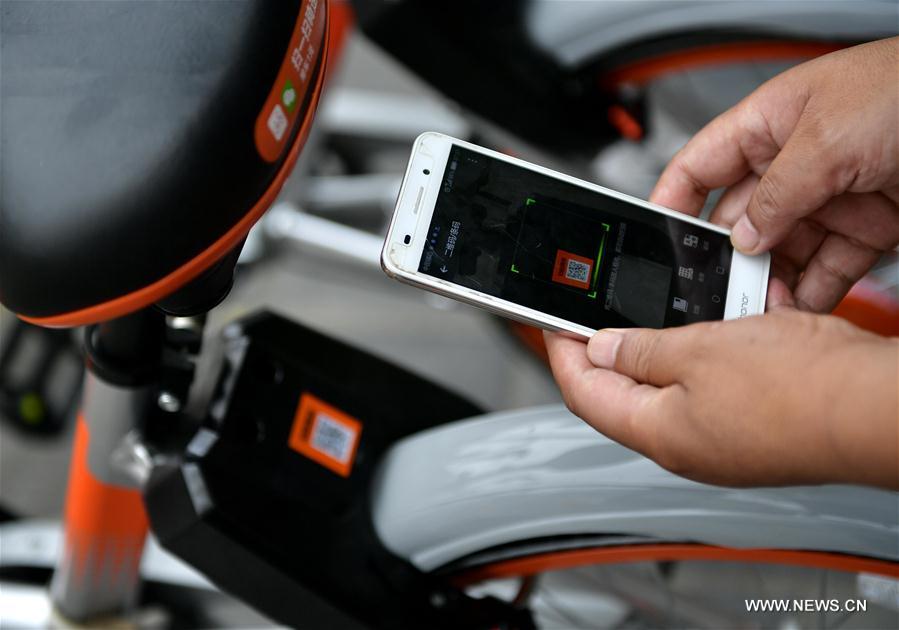
A man scans the QR code trying to use a shared bike in Xuan'en County, Enshi Tujia and Miao Autonomous Prefecture, central China's Hubei Province, July 11, 2017. The first 400 shared bikes were put into use in Xuan'en County.(Xinhua/Song Wen)
BEIJING, July 24 (Xinhua) -- Ancient China boasts four era-defining inventions -- papermaking, printing, gunpowder and the compass -- that fundamentally changed human history.
Over past four decades, the Middle Kingdom has been largely known as the world's factory floor, as cheap labor fueled its breath-taking economic growth and sold made-in-China products to every corner of the world.
But those who believe China will remain the world's factory floor and "steal" jobs may need to think twice. In the last five years, the pace of innovation across China has notably sped up. The nation's creativity is leading the world once again.
What follows are just a few of China's recent innovations:
SHARING ECONOMY
"China used to copy the Silicon Valley, but now Silicon Valley copies China," said Li Le, who runs Zhubaijia, the Chinese version of Airbnb.
Zhubaijia started the practice of combing homestays with travel services, a business model that Airbnb soon followed.
But the real stars in the sector are bike-sharing companies. Orange or yellow two wheelers first appeared on China's streets in 2015 when the two bike-sharing companies Mobike and Ofo were established.
Now more than 50 bike-sharing startups run a total of 15 million bikes in China, according to Shanghai Bicycle Association.
Mobike and Ofo each have 100 million registered users and more than 5 million bikes in 100 cities worldwide, with more than 20 million completed rides every day. By the end of this year, they expect to reach at least 200 cities worldwide.
Eager investors from China and abroad have injected 600 million and 700 million U.S. dollars respectively into the two companies this year. The market value of Mobike has reached 3 billion dollars.
The bike-sharing sector is the epitome of China's booming sharing economy, which saw deals worth some 3.45 trillion yuan (512 billion U.S. dollars) in 2016, according to a report released by the Sharing Economy Research Center under the State Information Center.



